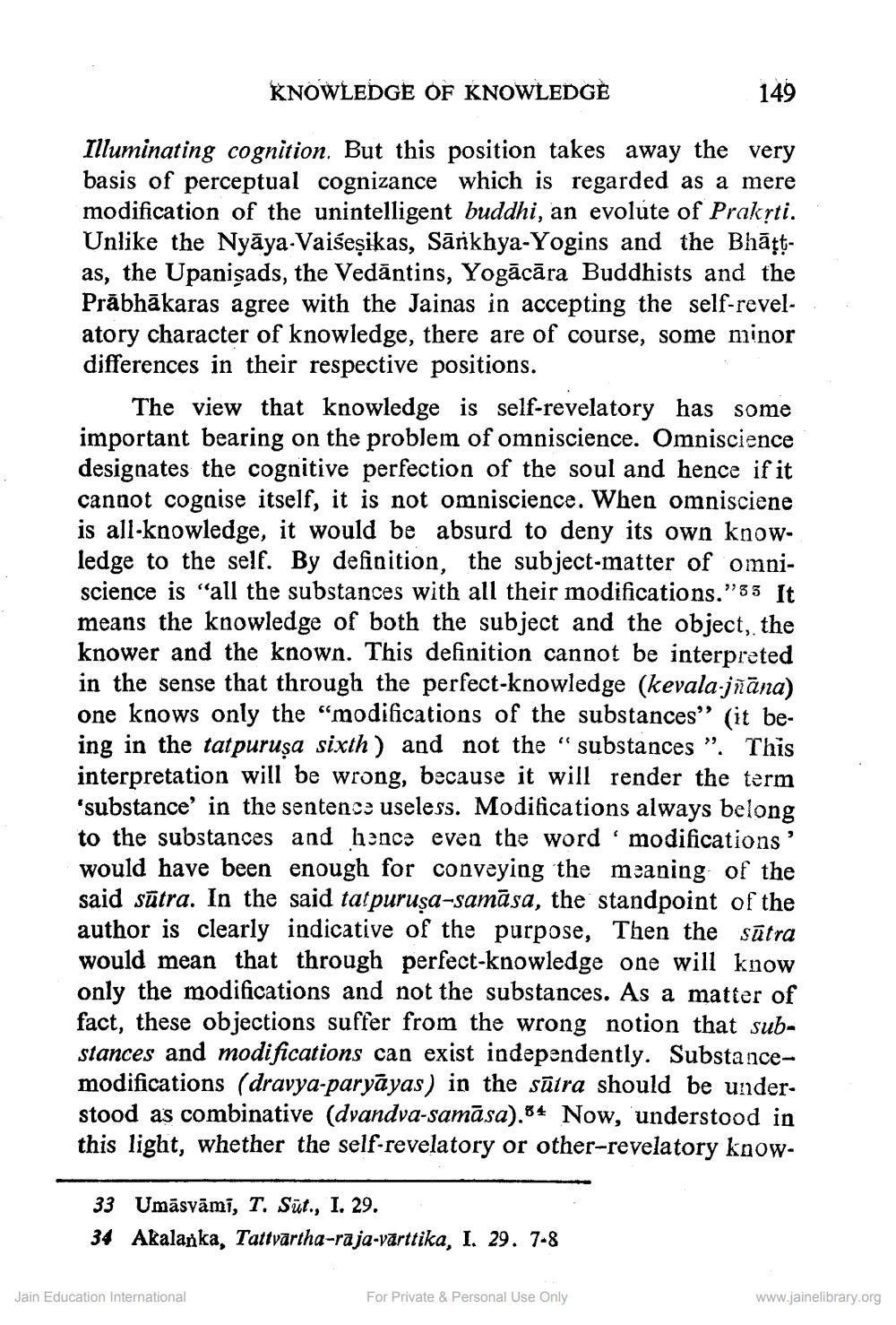________________
KNOWLEDGE OF KNOWLEDGE
149
Illuminating cognition. But this position takes away the very basis of perceptual cognizance which is regarded as a mere modification of the unintelligent buddhi, an evolute of Prakrti. Unlike the Nyāya.Vaiseșikas, Sārkhya-Yogins and the Bhāţtas, the Upanisads, the Vedāntins, Yogācāra Buddhists and the Prābhākaras agree with the Jainas in accepting the self-revelatory character of knowledge, there are of course, some minor differences in their respective positions.
The view that knowledge is self-revelatory has some important bearing on the problem of omniscience. Omniscience designates the cognitive perfection of the soul and hence if it cannot cognise itself, it is not omniscience. When omnisciene is all-knowledge, it would be absurd to deny its own knowledge to the self. By definition, the subject matter of omniscience is "all the substances with all their modifications."33 It means the knowledge of both the subject and the object, the knower and the known. This definition cannot be interpreted in the sense that through the perfect-knowledge (kevala-jñana) one knows only the "modifications of the substances” (it being in the tatpuruşa sixth) and not the “substances". This interpretation will be wrong, because it will render the term 'substance' in the sentence useless. Modifications always belong to the substances and hence even the word 'modifications' would have been enough for conveying the meaning of the said sūtra. In the said tatpurusa-samāsa, the standpoint of the author is clearly indicative of the purpose, Then the sūtra would mean that through perfect-knowledge one will know only the modifications and not the substances. As a matter of fact, these objections suffer from the wrong notion that substances and modifications can exist independently. Substancemodifications (dravya-paryāyas) in the sūtra should be understood as combinative (dvandva-samāsa).34 Now, understood in this light, whether the self-revelatory or other-revelatory know
33 Umāsvāmi, T. Sūt., I. 29. 34 Akalanka, Tattvartha-raja-vārttika, I. 29. 7-8
Jain Education International
For Private & Personal Use Only
www.jainelibrary.org




